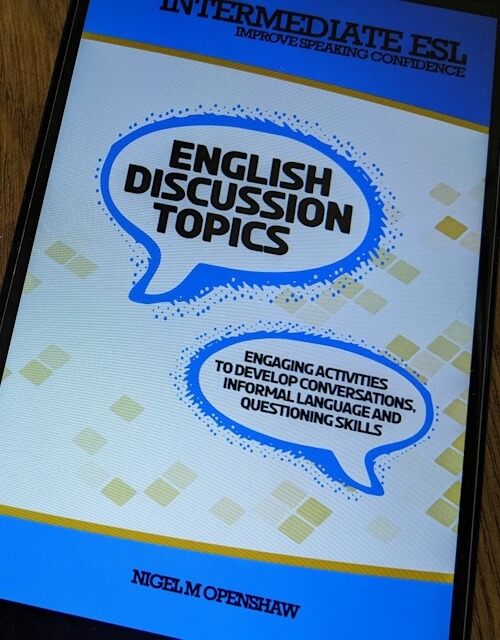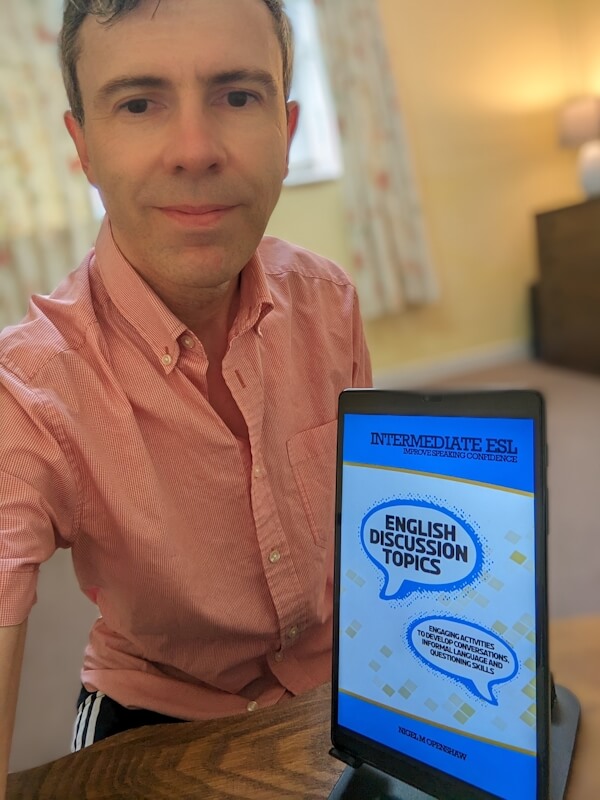 Discover the perfect companion for classroom discussions with this practical resource full of low-prep exercises and thoughtfully selected materials for improving English conversation.
Discover the perfect companion for classroom discussions with this practical resource full of low-prep exercises and thoughtfully selected materials for improving English conversation.
The flexible exercises can seamlessly integrate into your lesson plans. With my extensive ten years of teaching experience, I have chosen these resources based on the most engaging classes I've conducted.
Each chapter features a comprehensive To-do list and a convenient Reference section with supplementary materials. This user-friendly format ensures that you can effortlessly dive into teaching while staying on track throughout the process.
By utilizing these valuable materials, your students can reap numerous benefits, including:
- EXPANDING THEIR SPEAKING VOCABULARY: Empower your students with a broader range of words and expressions, enabling them to express themselves more fluently and precisely.
- ENHANCING CONVERSATION STRATEGIES: Equip your students with practical techniques and approaches to confidently and eloquently navigate conversations.
- DEVELOPING CONVERSATIONAL SKILLS: Foster your students' ability to engage in meaningful and authentic discussions, building their confidence and interpersonal communication abilities.
- UTILIZING SYNONYMS FOR CLARITY: Teach your students the power of using synonyms to convey their thoughts and ideas precisely, enhancing their overall clarity of expression.
- EXPLAINING SLANG AND INFORMAL PHRASES: Bridge the gap between formal and informal language, enabling your students to navigate real-life conversations and understand native speakers with ease.
Get in-depth answers to "Where is a beautiful place to visit," find out the meaning of "down to earth," or use set keywords for an "environmental discussion."
This book offers low-prep conversation exercises and materials to enhance students' vocabulary, conversation strategies, and conversational skills.
Are you ready to simplify lesson planning and unlock students' full potential? Don't miss the opportunity to make a real impact in your classroom. Grab your copy today and embark on an enriching teaching journey!


